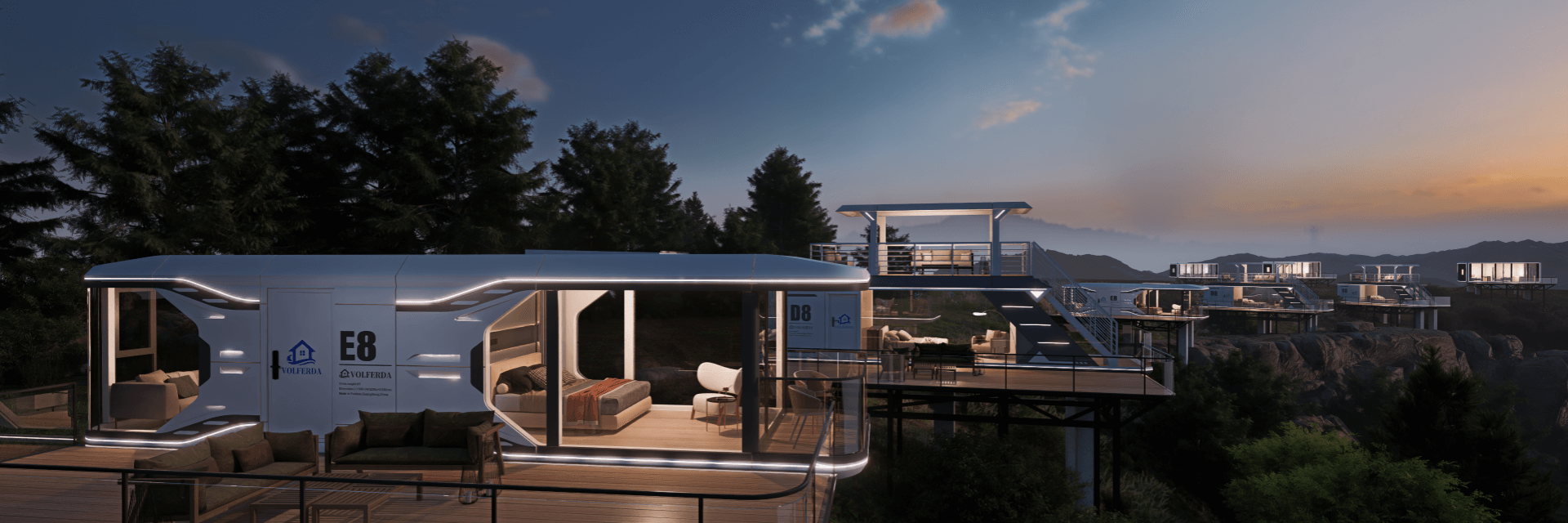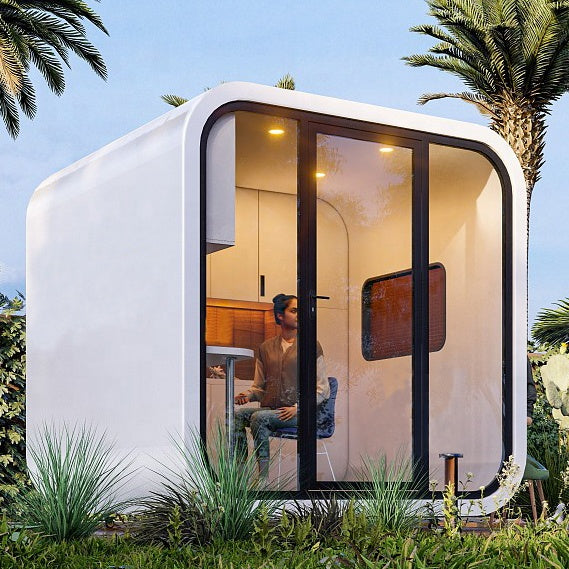Discover the Unique Appeal of Capsule Homes Australia for Eco-Friendly Living
Discover the Unique Appeal of Capsule Homes Australia for Eco-Friendly Living
Blog Article
Why Modular Homes Are the Future of Sustainable Living
Modular homes are increasingly identified as a crucial solution for sustainable living, supplying a blend of effectiveness, cost-effectiveness, and ecological benefits. Their construction in controlled settings substantially reduces waste and enhances precision, while the capacity for including advanced energy-efficient systems positions them as a forward-thinking choice in real estate. Furthermore, the flexibility of modular layouts permits the combination of sustainable innovations and materials tailored to individual needs. As we browse the challenges of urbanization and environmental sustainability, one should consider exactly how these homes could redefine our technique to living spaces.
Ecological Benefits of Modular Residences
The ecological advantages of modular homes stand for a substantial step toward lasting living. These homes are built in controlled factory settings, which significantly minimizes waste produced during the building process. By maximizing materials and lessening excess, modular building adds to an extra reliable use resources contrasted to conventional building approaches.
Additionally, modular homes are often designed with energy efficiency in mind. Several integrate advanced insulation methods, energy-efficient home windows, and lasting materials, adding to reduced power usage. This can cause minimized greenhouse gas emissions over the life expectancy of the home, enhancing its overall ecological account.
The ability to transport and assemble modular components on-site also reduces the carbon footprint connected with construction logistics. Moreover, several modular homes are constructed to be versatile and conveniently upgradeable, allowing property owners to execute sustainable modern technologies, such as solar panels and energy-efficient heating unit, in time.
Inevitably, the ecological benefits of modular homes not just promote sustainable living however likewise encourage a more accountable strategy to housing advancement, aligning with international efforts to deal with environment change and protect all-natural resources for future generations.
Cost-Effectiveness and Price
Structure a home frequently represents among the largest financial investments people make in their lifetime, and modular homes supply an engaging remedy for those seeking cost-effectiveness and price. One of the main benefits of modular homes is their reduced building and construction costs compared to traditional site-built homes. The structured production process enables for considerable financial savings on labor and products, which translates to decrease prices for consumers.
Additionally, modular homes normally have shorter construction timelines. This not just reduces expenditures connected to financing and insurance yet additionally alleviates the dangers related to rising cost of living and changing market conditions. Lots of buyers locate that modular homes can be tailored to fit their spending plans without compromising high quality or design.
Additionally, energy performance is typically constructed right into the style of modular homes, leading to minimized energy expenses with time. Several makers focus on sustainable materials and practices, better enhancing the long-term financial viability of these homes. In general, the mix of initial expense financial savings, quick building, and ongoing energy performance makes modular homes an eye-catching choice for those looking to purchase sustainable living without damaging the bank.
Performance in Building
Modular homes not only offer economic benefits however likewise master building and construction effectiveness. The home modular building procedure includes the synchronised building and construction of modules in a manufacturing facility setup while website preparation occurs concurrently. This parallel approach substantially lowers the overall timeline from fertilization to completion, usually reducing construction time by as much as half contrasted to standard approaches.
Furthermore, factory-controlled settings enhance high quality assurance. By making use of accuracy production strategies, modular homes are constructed to exact requirements, decreasing waste and errors. This uniformity not only causes a better product yet additionally adds to lasting techniques by lowering product waste throughout construction.
Additionally, making use of modern technology and automation in the production process allows for quicker setting up and lowered labor prices. As soon as the components are moved to the site, they can be effectively assembled, even more accelerating the timeline. This structured procedure is not only useful for contractors but likewise lessens interruptions to the surrounding environment during building and construction.
Customization and Design Adaptability
An excellent selection of customization choices identifies modular homes, permitting homeowners to customize their space to satisfy specific needs and preferences. This style flexibility is a characteristic of modular construction, allowing customers to pick every little thing from layout and room layouts to fixtures and coatings. Unlike typical homes, modular layouts promote a collaborative strategy where designers and builders function carefully with house owners, ensuring that each aspect straightens with individual lifestyles and aesthetic needs.
Moreover, modular homes can be easily reconfigured or increased, fitting changing family characteristics or evolving personal tastes. This flexibility not just improves the home's performance however additionally adds to long-term sustainability, as house owners can customize their areas as opposed to seek brand-new real estate options.

Future Patterns in Lasting Housing
Arising trends in sustainable housing are reshaping the landscape of domestic building and construction, emphasizing cutting-edge technologies and environmentally friendly methods. One substantial trend is the combination of smart home technology, which improves power efficiency with automated systems that check and maximize power consumption. This not only decreases energy costs yet also adds to a reduced carbon impact.
Additionally, using sustainable materials is coming to be significantly typical. Builders are deciding for reused, in your area sourced, or swiftly sustainable materials, which minimize environmental influence and support local economies. In addition, modular homes are obtaining popularity for their Read More Here reduced waste during building and construction and their flexibility to different surfaces and climates.
One more trend is the consolidation of environment-friendly roofings and living walls, which enhance air quality and provide natural insulation. These features additionally advertise biodiversity in urban locations.
Verdict
Finally, modular homes emerge as a critical remedy for additional hints lasting living, providing significant environmental advantages through decreased waste and energy performance. Their cost-effectiveness and affordability resolve the expanding real estate demands in urban areas, while effective building and construction processes boost total performance. The inherent customization and style adaptability satisfy diverse choices and requirements. As trends in lasting real estate progress, modular homes are positioned to play a vital role in promoting eco-friendly living practices for future generations.
Structure a home frequently represents one of the largest financial investments individuals make in their life time, and modular homes use an engaging option for those looking for cost-effectiveness and price. One of the key benefits of modular homes is their lower construction expenses contrasted to conventional site-built homes. Overall, the combination of initial price savings, fast construction, and recurring energy performance makes modular homes an eye-catching choice for those looking to spend in lasting living without breaking the financial institution.
Eventually, the customization and layout versatility supplied by modular homes make certain that they are not simply frameworks, yet individualized sanctuaries that mirror the distinct identifications of their passengers while promoting sustainable living methods.

Report this page